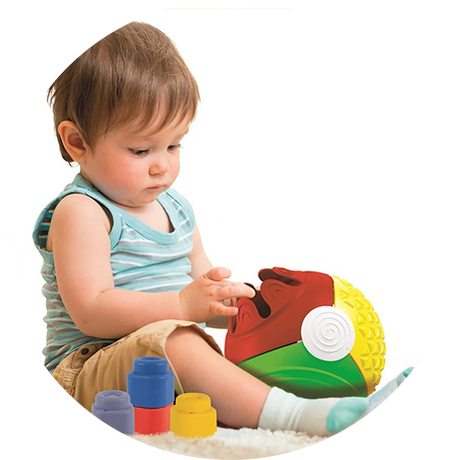
When we talk about meaningful play for children, we are really looking at the four criteria below that should guide us when deciding what products to choose.
- Fun and Engaging – Products that allow kids to experience pure joy, every day.
- Experience Based – Products that connect kids to the people and world around them.
- Child Led – Products that are powered by the child’s imagination, not dictated by instructions.
- Developmental – Products that foster STEAM discovery and learnings, and grow with your child’s age, abilities and interests.
Why is Meaningful Play Important?
Studies have shown again and again that Meaningful Play is crucial for children of all ages, particularly with young minds ages 3 and up. The benefits are seemingly endless, but here are 4 of the most important benefits of Meaningful Play.
- Enhance Cognitive Development
Toys that engage children’s cognitive faculties in multiple ways and allow kids to explore geometric concepts, spatial relationships, and symmetry intuitively. As children experiment with building structures, they naturally develop skills in shape recognition, pattern formation, and critical thinking. The process of deciding which tiles to place where and how to connect them fosters logical reasoning and planning, helping children refine their problem-solving skills. Through trial and error, they learn cause-and-effect relationships, as well as how to adapt their strategies to achieve their desired outcomes.
- Foster Creativity and Imagination
Toys that encourage children to tap into their boundless imagination. Unlike toys with specific instructions or fixed narratives, look for toys that are open-ended. This means kids can create anything they can imagine, from futuristic cities to whimsical creatures. This freedom empowers them to think outside of the box, nurturing their creative thinking abilities. As they play bringing their ideas to life, they learn to visualise concepts, problem-solve, and innovate – essential skills that extend far beyond playtime.
- Develop Fine Motor Skills
The process of assembling and lining up toys requires coordination between the hands and the brain. Picking up, positioning, and sorting not only strengthens their hand muscles but also enhances hand-eye coordination. These foundational skills are essential for various everyday tasks, such as writing, drawing, and even dressing themselves.
- Promote Social Interaction
While many toys can entertain a child alone for hours, they also serve as a wonderful tool for collaborative play. When children come together to build structures, they practice teamwork, negotiation, and communication. They learn to share ideas, compromise on design choices, and work towards a common goal. This type of play nurtures their ability to listen to others, express their thoughts clearly, and function effectively in group settings – all vital skills for future social interactions.
Good to Play toys have a wonderful selection of toys from global brands that are selected for the enhancement of meaningful play.


